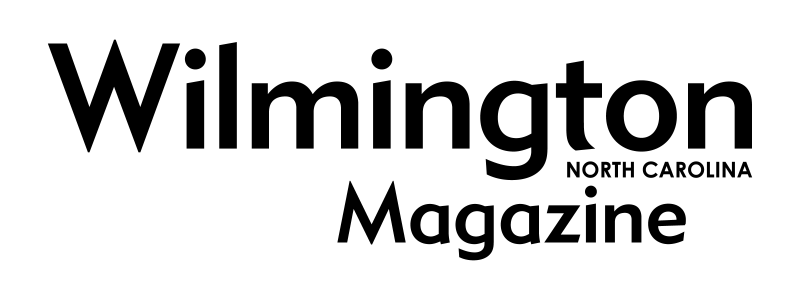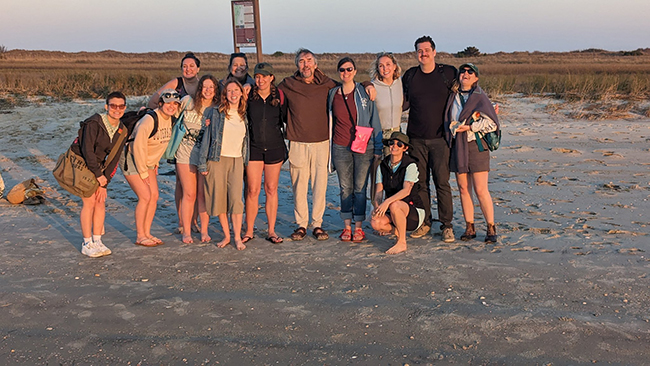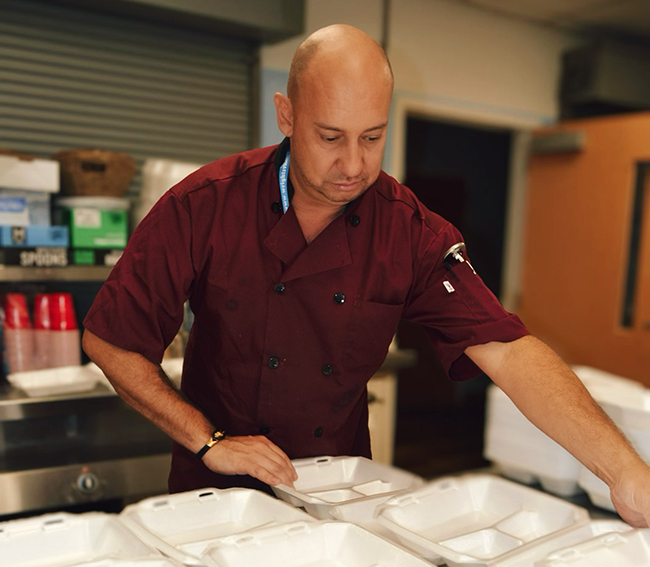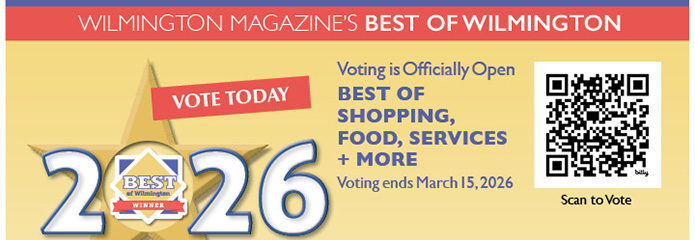An Empowering Hart
04 May 2019
Chief Executive Officer Charrise Hart is taking the YWCA’s outreach and mission to new heights
By TERESA A. McLAMB
Photo by KELLY STARBUCK PHOTOGRAPHY
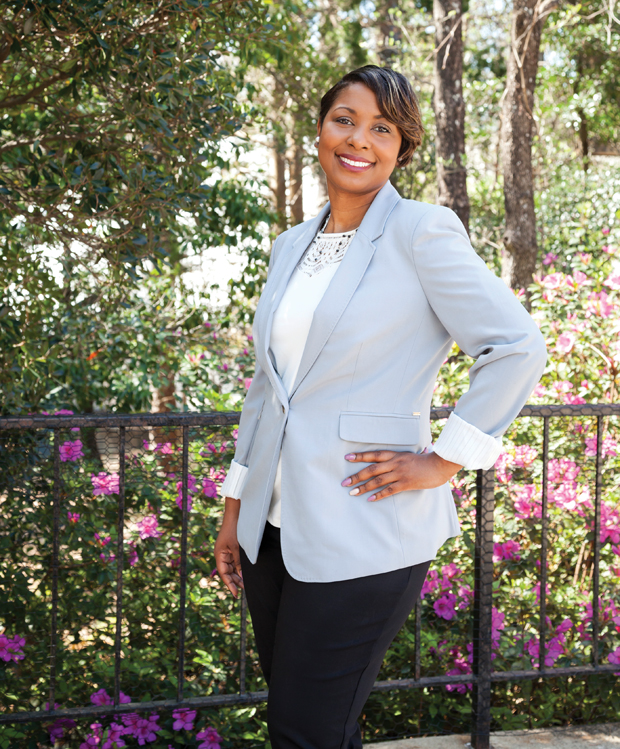
Despite feeling shy, Charrise Hart spent a lot of time in group activities as she grew up in High Point. An honor roll student and cheerleader in middle school and high school and an all-county violinist, she also stayed busy volunteering through her church and civic organizations.
“I tutored students, volunteered for Habitat for Humanity. My senior year I was a volunteer cheerleading coach for the neighboring middle school,” says Hart.
As a member of her high school’s International Club, she and other students examined global issues like diversity and inclusivity. “It’s a lot like what I do today with empowering women. The International Club lit my fire. It was something I knew I wanted more of, and I wanted to focus on diversity so all people feel included regardless of their cultural background, religion, race or gender,” explains Hart.
Volunteering at a nursing home was another experience that inspired her to become involved in social work. “At their gala, we served the food and put on a show for them. It made them feel important and validated. They were so excited. In working with the elderly, I realized how lonely they were, and it inspired me to give back,” says Hart. It also was one of the experiences that inspired her to go into social work, but that would be a few years away.
When she enrolled at NC State, she declared a history major. Not being completely satisfied with that, she switched to education. “Then my father said, ‘It’s time to settle down on a major,’ so I selected sociology, and I absolutely loved it. I loved people, and I loved studying people. It was a perfect fit,” Hart says.
After graduation, Hart accepted a job near home in Greensboro where she volunteered at the YWCA. Her mother, who had enrolled in UNC Greensboro, was a Y intern at the same time.
Hart was mentor to a teen parent and her child. “I fell in love with the program and the mission of the YWCA,” she says. A year later, a caseworker position became available, and Y management asked her to apply. The pay was less than what she was making at her regular job. “Something told me to go for it. I felt that I would be happier at the YWCA, and it was the best move I ever made. One of my best decisions,” says Hart.
Five years into her work in teen mentoring and as program coordinator for an infant mortality reduction program for Guilford County, she left, with management’s blessing, to pursue a master’s in social work at UNC Chapel Hill. She interned for the NC Housing Coalition which advocates for affordable housing for all residents of NC. While studying she worked as a graduate resident advisor for a diverse group of students which included members of the UNC men’s basketball and football teams. “I worked with them on issues with life situations and growing pains. I had always mentored young women so having men provided a different perspective,” Hart says.
After graduation, she worked for a Raleigh-based child and family services agency as a fundraiser and marketer, adding to the facets of non-profit management that she had been racking up.
That’s when she was recruited to return to the Greensboro YWCA as its chief operating officer. “I never thought I would return to YWCA Greensboro; I was happy there, but didn’t expect to return,” Hart explains.
The role included leadership on their $5 million capital campaign, operations and fundraising. “I gained financial experience, and that’s what pushed me to go to business school,” Hart says. Her manager’s reaction was: “You’ve got to be kidding.” Hart explained that she needed a different perspective. “I knew how to empower my community, but I needed to improve my business acumen,” she says.
When the job as Wilmington’s Y chief executive officer became available two years ago, Hart’s ever-supportive manager encouraged her to apply. “I think few would encourage their second in command to push higher. That’s the mission of the Y, and I hope to instill that in others. We don’t believe in holding women back,” says Hart
When she arrived in Wilmington, she found a board ready to implement change that would take the Y’s outreach and mission to a greater capacity. “They wanted to be seen in the community as the place for all women, families and children to improve their wellbeing and health and economic mobility, while addressing racial justice and advocacy in our community; I knew my hands were going to be full,” says Hart.
“We decided to begin implementing recommendations from our strategic plan which included development of new community impact programs so we can expand our economic advancement program which provides coaching, tuition assistance and education for women with low incomes that enables them to obtain jobs that earn a living wage,” says Hart. A $50,000 grant from All-State Foundation helped to expand the program to the four-county service area of New Hanover, Pender, Brunswick and Columbus.
They also launched an initiative which connects women and minorities to small business loan capital and encourages them to launch their own businesses.
A new program was started for teen parents in Columbus County, which has one of the state’s highest teen pregnancy rates. The Y is under contract with the NC Division of Health and Human Services for this program that helps mothers graduate from high school and emphasizes delaying another pregnancy. It also helps to ensure children are kindergarten ready.
“We are now shifting our early childhood education model to a global learning academy with an emphasis on early literacy, so even the youngest learners in the community can be included in our mission of eliminating racism and empowering women,” says Hart.
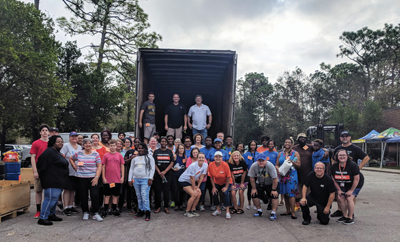
On the Y’s Wilmington campus, early childhood education has been an integral program for nearly 35 years. Thousands of children have attended pre-school education classes there. Hart referenced work by Dr. James J. Heckman, director of the Center for the Economics of Human Development, University of Chicago. He wrote: “Investing in early childhood education is a cost-effective strategy—even during a budget crisis. Deficit reduction will only come from wiser investment of public and private dollars. Data (sic) shows that one of the most effective strategies for economic growth is investing in the developmental growth of at-risk young children. Short-term costs are more than offset by the immediate and long-term benefits through reduction in the need for special education and remediation, better health outcomes, reduced need for social services, lower criminal justice costs and increased self-sufficiency and productivity among families."
“Reaching these women and children in the four-county service area requires collaboration and partnerships,” Hart says. The teen parenting program is an example. Hart continues, “We have an excellent relationship with Columbus County Partnership for Children which is where the program is housed. It’s a win-win.” The department places a strong emphasis on early childhood education and kindergarten preparedness, which is a perfect complement to the Y’s mission to address disparity.
Similarly, a New Hanover County grandparent support program serves 150 grandparents and the grandchildren they are raising. “Due to the opioid problem, we have a wait list for the program,” Hart says. At weekly meetings, children meet for crafts and games while the grandparents have a couple of hours to interface with case managers and peers situation while sharing a warm meal. “We have a 72-year-old who is raising a 3-year-old. This program is important. The grandparent has some sense of stability and the grandchild as well,” explains Hart.
Meetings are held at the Catherine Kennedy Home with the support of First Presbyterian Church volunteers. “They do so much; we could not do that program without that relationship,” Hart says.
The program was designed to last six months, but Hart says participants continue to come long afterwards.
“Back at the Y, it’s time to reassess the strategic plan, to look themselves in the mirror,” Hart says.
In the short term she wants to see finalization of the expectations of the current plan. They are financially stable, and their human resources retention rate has greatly improved. Emphasis will continue to be on collaboration with other nonprofits and corporate partners.
A new strategic plan, when developed, will address those issues, and likely others.
Not one to stay away from a university for long, Hart teaches undergraduate and graduate level courses in social work part time at UNCW. “My job is to prepare students for their internships,” Hart says.
Looking forward five years, Hart hopes to see either a new or an upgraded facility which will help the organization to better serve the community. She also plans to see an even greater presence of Y programming and assistance in each of the four counties.
In March, Hart served as a national YWCA delegate to the United Nations Commission on the Status of Women 63rd Session. “It was amazing. I had an opportunity to network with women from all across the globe including Nigeria, Finland, Australia, Kenya, Japan,” she says. The World YWCA is headquartered in Switzerland and thousands of associations thrive across the globe.
“It was an honor to be selected,” Hart says. “As a result, I have joined the World Service Council of YWCA. This will help me drive this global learning academy for children. It gives us the opportunity to look at policies affecting women across the globe. Some people don’t have clean water, so how do you rise above?”
Reflecting, Hart sees her current spot on the planet looping back to the International Study Club in high school where broader questions led to broader examinations of the world in which we live and gave her the desire to make a positive difference in individual lives.
